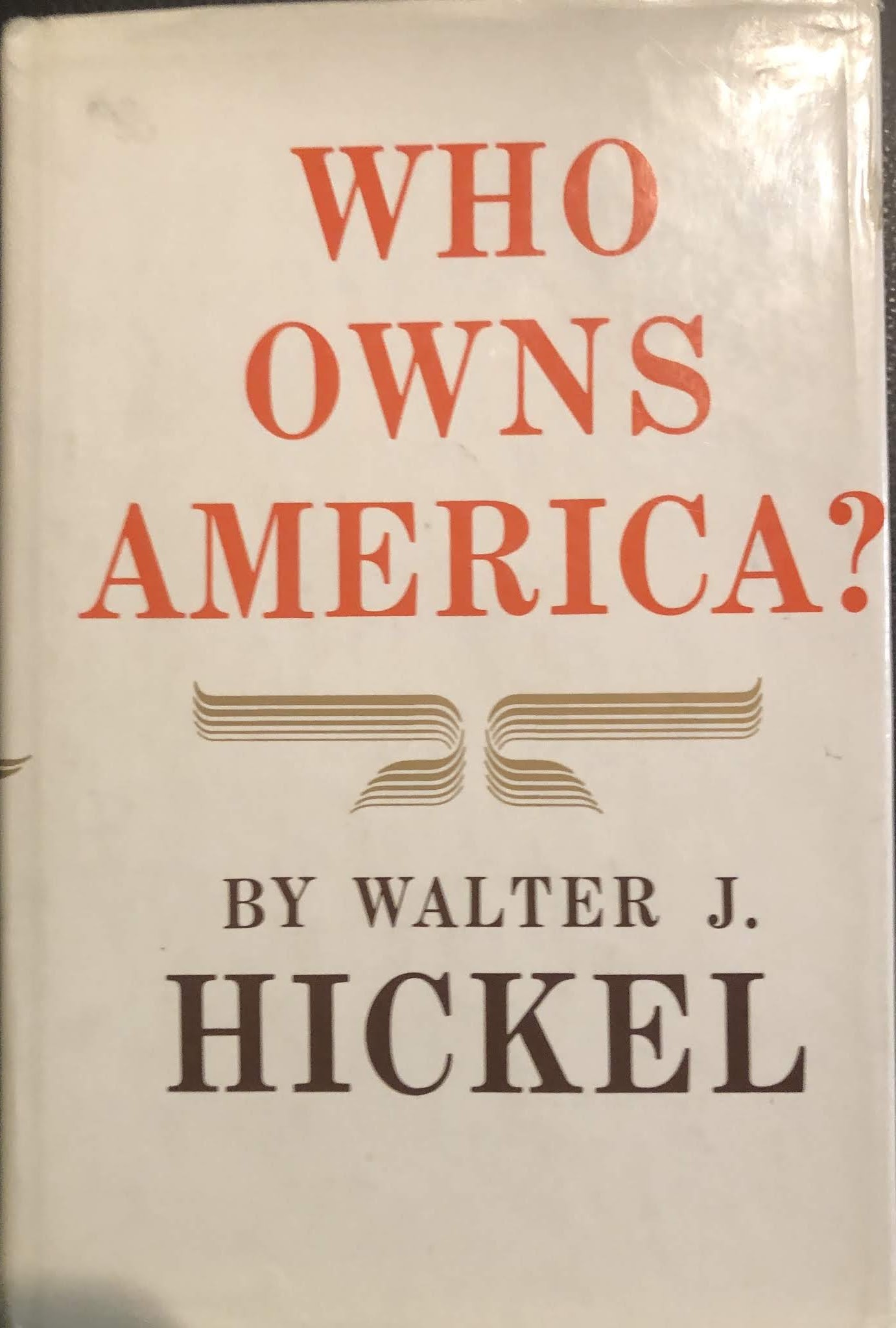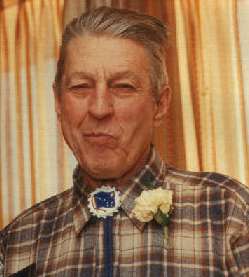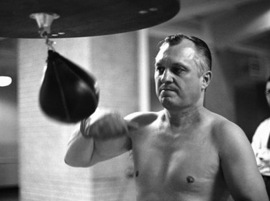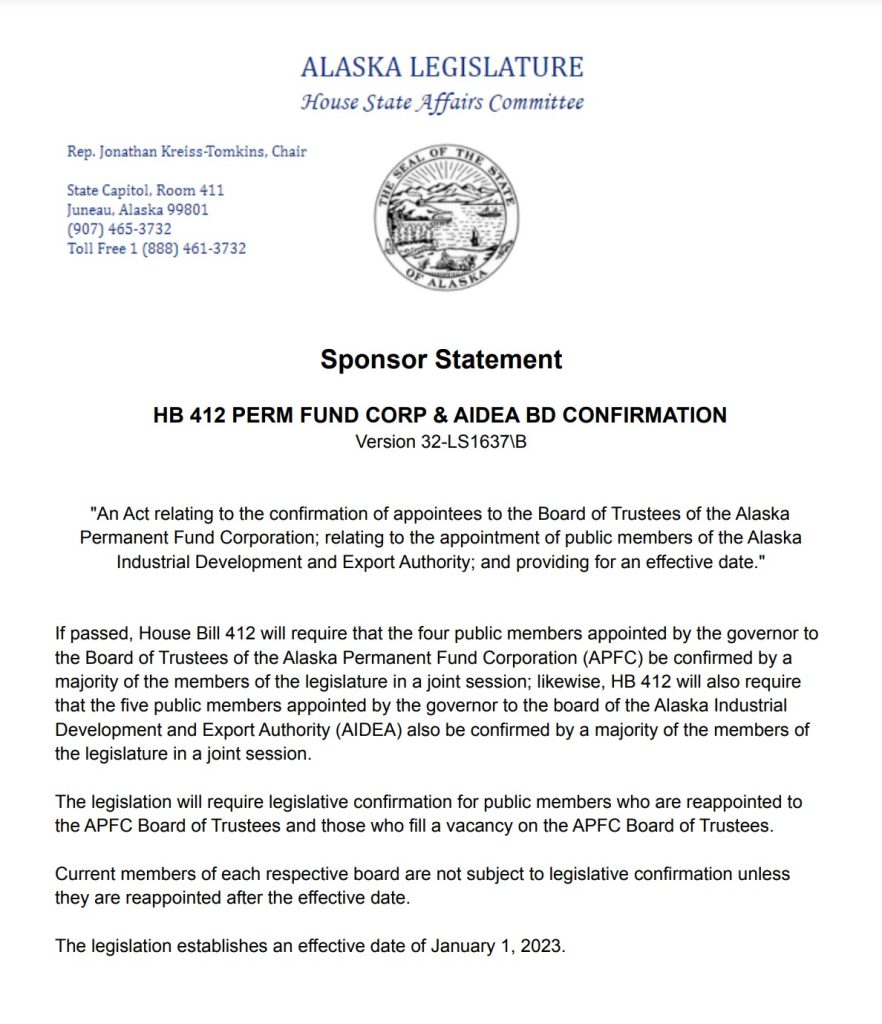Update on story originally posted November 20, 2019.

As Governor of Alaska, Walter Hickel knew government
was not the solution to many problems and maintained
an Alaska First standard for everything he made happen.
There have been times when Alaska politics were entertaining, candidates knew every vote counted, and campaigns could take on the atmosphere of a circus. Many Alaskans were especially amused when a pair of die-hard Republicans, Can-Do Wally Hickel and Jack Coghill ran for governor/lt governor as Alaska Independence Party (AIP) candidates and won!
[1](Alaska Independence Party website
Hickel had been governor before and Coghill had been a member of the Alaska Constitutional Convention in 1955 dedicated to writing a constitution Alaskans hoped would show the U.S. Congress and US. President Dwight Eisenhauer we were worthy of statehood.
It worked–and 60 years later Alaskans must be judged
by the caliber of politicians we have elected and how
they have protected and honored intent of the Alaska
Constitution regarding resource development.

They Don’t Make ‘Em like they used to…

For background: Alaska’s statehood convention knew Natural Resources had to be developed for an economic base. The point was made early by Alaska’s delegate to Congress, Bob Bartlett, in his key note speech to the delegates: …fifty years from now, the people of Alaska may very well judge the product of this Convention not by the decisions taken upon issues like local government, apportionment, and the structure and powers of the three branches of government, but rather by the decisions taken upon the vital issue of resource policy.
Everyone seeking statehood believed disposition of
resources had to be done right. We see the wisdom of
Sen. Bartlett’s words as our $70+ Billion Alaska
Permanent Fund from oil revenues has now become a
political target of Special Interests.
Incredibly, Alaska Permanent Fund Board of Directors appointees are not even confirmed by the Legislature! And, efforts to make appointees subject to confirmation by the legislature have received lackluster support.
[3]Legislation to make PF Board Members subject to legislative approval.

Gordon S. Harrison further explains importance of Natural Resource consideration in Alaska’s Constitution, 5th Edition: Thus, the convention delegates sought to enshrine in the state constitution the principle that the resources of Alaska must be managed for the long-run benefit of the people as a whole—that is, the resources of the state must be managed as a public trust. They did not attempt to write a resource code; rather, they sought to fix the general concept of the public interest firmly in the resource law and resource administration of the state, as well as in the consciousness of Alaskans, so it would not be subverted through the indifference or avarice of future generations.
The founders were looking to the future. Among the states of the United States Alaska’s constitution is unique with its emphasis on “utilization, development, and conservation of all natural resources belonging to the state, including land and waters, for the maximum benefit of its people.” (Article VII-Natural Resources-Section 2)[4]
In other words: Natural Resource Development was not tied to use for short-term public good. Rather, our natural resources are a kind of trust for the future of Alaskans who live here, contribute, raise productive families, and likely die here. Organized Outside Interests–mostly public employee unions–don’t want Alaskans to recognize this reality as they have dumbed down our schools and made the state workforce expensive beyond most worker’s value.
This is a direct attack on our Permanent Fund

Can-Do Walter J. Hickel described Alaska as The Owner State in his 1971 memoir “Who Owns America,” written after being fired by President Richard M. Nixon as Secretary of the Interior: The public must demand that government face the fact that it is in business. The president’s Cabinet is the board of directors for the largest company in America. Its stockholders are 200 million Americans. The poorest ghetto child has as much stock interest in the Continental Shelf, for example, as the president of any large company. He is an owner. The great rivers are his, as are the lakes and millions of acres of rugged beauty from Cape Cod to the Redwoods. These are not for anyone’s private exploitation. This does not mean that they will not be used privately, It means that they will not be abused privately.
[5]Who Owns America book
Stock in this company is set by citizenship but the economy determines the stock’s value. Hickel also famously said: You can’t just let nature run wild, and on another occasion every Alaskan is an environmentalist. He was capable of glorious contradictions.
While Alaskan resource ownership was specified in the Alaska Constitution, Hickel believed it extended to the entire nation through our parks and national heritage institutions. But Hickel was also controversial in Alaska. His successful campaign for governor in 1990 was a circus. The media mocked him as Hickel and Lt. Gov. Coghill, (who previously declared himself “Mr. Republican”), won election to office. This writer watched it from Juneau: Like two porcupines, once elected they distanced each other.
How Alaskans Voted
Alaska Independent candidates Hickel/Coghill received 75,721 votes (38.8%) to Democrats Tony Knowles/Willie Hensley 60,201 (30.9%) and Republicans Arliss Sturgulewski/Jim Campbell with 50,991 (26.1%).
[6]1990 Election Results
No mention of seceding from the United States, which was in the AIP platform. Some believe that when the USA gave Philippines independence after World War II it should have also given Alaska independence instead of making it a territory.
But that was never an option.
A lot has happened in Philippines since then. Philippines was occupied by the Spanish for some 300 years. As a result of winning the Spanish-American War the United States and Spain met for a conference in October 1898 to formally end the war and determine distribution of spoils.The Treaty of Paris In December required Spain to relinquish Cuba, Puerto Rico, the Philippines and the Marianas (Guam).[7]
President William McKinley, in his address to the U.S. Congress in 1899 declared: The Philippines are ours, not to exploit, but to develop, to civilize, to educate, to train in the science of self-government. He appointed two commissions, which were sent to Philippines during the American military regime. The first was to check on the conditions there while a raginng war was going on between the people of Philippines and the United States. The second commission under William H. Taft was directed by McKinley to facilitate the government to establish a government not designed for our satisfaction or for the expression of our theoretical views, but for the happiness, peace, and prosperity of the people of the Philippines.
Nobody ever suggested the intent of the US
Government to facilitate THAT for Alaskans!
In 1916 The Jones Law was passed by the US Congress, which had a preamble declaring that independence would be granted to the Filipinos as soon as a stable government could be established in the Philippines. Unfortunately, WWI broke out in and the quest for independence was suspended out of gratitude and benevolence of the Americans. But when the war was over the drumbeat for independence continued with a mission of elected officials sent to the US in 1919.[8]
The U.S. Congress passed legislation allowing formation of a government and the Filipine Legislatire set May 5, 1934 as the date for election of 202 delegates to a constitutional convention. That constitution was passed by the assembled delegates on January 31, 1935 and approved by U.S. President Franklin Roosevelt on March 23, 1935. It was overwhelmingly approved by the Filipino electorate by 1,213,046 to 44,963.[9]
While some Filipinos wanted U.S. Statehood, the majority wanted Independence and had already proven they were willing to fight for it. This constitution provided for a Parlimentary form of governance with a prime minister at its head exercising both executive and legislative powers and the president as a ceremonial head of state only. This constitution would be challenged in 1971 by elected president Ferdinand Marcos, Jr. who used the fact the US Government had required approval of the constitution as one reason why it had to be replaced. Marcos declared martial law in September 1971 to “save the Republic and to reform our society.” Mass media were censored and personalities who had opposed Marcos and his policies were jailed. In his 20-year tenure 1965 to 1986 an entire generation of Filipinos grew up knowing no president other than him.
By Marcos’ 3rd term the economy was crashing and the people had enough.
Alaska History is Boring by Comparison. Political opponents have been killed in Philippines!
How Hickel’s Election was Reported by
Glib Outside Media
Alaskans have brought back from the past one of the biggest drillin’, sawin’, digging’, dreamers in all this big, wild state to be their governor, declared John Balzar, reporting in the Los Angeles Times, February 7, 1992. He (Hickel) has just finished this first year in office, trying to lead the charge toward his grand vision of another free-spending development boom for oil, minerals,
timber, railroads and highways, continued Balzar in that story, reprinted in the Juneau Empire on the same day in 1992.
Balzar continued: His dreams remain as wide-eyed and unshakable as a young Klondike prospector’s: Push roads through national parks, drill for oil in wildlife refuges, cut more timber from the vast national forests, activate a gigantic gold mine in the capital, build another pipeline from the North Slope—to carry natural gas. Bigger ports, longer rail lines, more and wider highways—these, too, are in Hickel’s big dreams.
Hickel, champion of the great Alaska oil rush at Prudhoe Bay, the political wildcatter who promoted the colossal Alaska oil pipeline, flamboyant Wally Hickel who stood up to Richard M. Nixon, the hard-hewn Hickel who made himself a millionaire out of 37 cents in pocket change, is today, at 72 smack up against a different dream for Alaska—the dream of preserving it against the large-scale development he champions, continued Balzar.
Hickel is further described by Balzar as: …a champion of states’ rights, a ho-hum politician and the operator of the best hotel in Anchorage. Of course that is the Captain Cook Hotel.
[11]Captain Cook Hotel, Anchorage
Late in 1990, on the day before the registration deadline, Hickel strode out of the shadows as an independent third-party candidate, wrote Balzar. If he could not command a majority of Alaskan voters behind him, here was an exploitable alignment of political forces: The Republicans and Democrats nominated moderates who wore the drab grays of consensus politics.

Then there is the pugilist Hickel

What some idealists don’t realize is that the color of the environment is not just green. It is real. A person who is cold, hungry and unemployed is in an ugly environment. Poverty is the worst enemy of the environment. My question is, what has the Sierra Club ever done for the poor? Hickel said.
Walking the walk, Sec. Hickel was the first ever to use the Endangered Species Act to try and save an species of animals–whales.
Balzar also pointed to oil companies financing 87 percent of the budget of the richest state government in America–six times the per-capita spending of other states. As governor, Hickel contributed to our state’s wealth, securing a $1.1 billion cash settlement just three years after the Exxon Valdez oil spill, avoiding an epic court trial. (The battle over the Amoco Cadiz spill in France in 1978, by contrast, was still being waged in U.S. Courts. It happened when the supertanker Amoco Cadiz, foundered off the coast of Brittany to produce Europe`s worst oil spill. That claim settled in 1988 for $85.2 million.)
[12]Amoco Cadiz Legal Fight
Read about why BP Alaska has left The North slope here:
https://donnliston.net/2023/01/why-is-bp-leaving-alaska-2019-donnliston/
Hickel honored the law regarding distribution of Permanent Fund payments to Owner State residents under the original formula. His further accomplishments as governor the second time are detailed at alaskahistory.org as follows:
… negotiating and collecting a number of tax settlements with oil companies, including a $1.4 billion settlement with British Petroleum (BP), the largest in state history. A number of lawsuits were filed against the federal government to assert state rights.47 He settled the Mental Health Lands Trust dispute. The State of Alaska selected the final 23 million acres of its 103 million acre entitlement. Settlement of the 1989 Exxon Valdez Oil Spill resulted in use of the billion dollar fund collected to buy land and support science in Prince William Sound, Kachemak Bay, and on Kodiak and Afognak Islands. He proposed significant cuts in the state budget by cutting the general operating budget by six percent per year (eight percent with inflation), even though Alaska expected a $1 billion windfall because of higher oil prices caused by the Gulf War. He proposed placing the windfall into an investment fund to finance costly megaprojects to help diversify the state’s economy. Included among the projects was a huge port near Anchorage, extension of the Alaska Railroad, and an $11 billion pipeline to bring stranded gas to Asian markets.
Two projects that caught particular notice, but that Hickel did not push, were a water pipeline to California48 and an undersea railroad to Siberia. He allocated more funds for upgrading village water and sewer systems than the past three administrations combined. 49[13]
A True Alaska Legend left his mark
During this time of major accomplishments Hickel endured a nagging recall effort. Hickel chose not to run for reelection in 1994.
Wally Hickel was straight forward about politics. Again, from Who Owns Alaska: Politics is the art of compromise. If those words were carved out of solid granite in ten-foot letters up each side of the Washington Monument, they would be no more revered than they already are in the American capital. The expression has been used for generations as an excuse for selling out one’s beliefs and making a deal.
That’s the “drab grey of consensus politics Balzar refers to.
We had a governor candidate with that kind of mettle in the last election.
https://donnliston.net/2022/04/charlie-pierce-says-lets-put-alaskans-first/
The man who listens, who finds out the naked truth and goes forward without compromise, is a truly great leader.The real challenge for a leader is to sell those ideas he absolutely believes in from the heart. His greatest achievement is to gain support for those ideas that do not compromise his principles.”[14]
The Alaska Permanent Fund is a trust account established under Gov. Jay Hammond as a means to assure future Alaskans–including those not even alive when oil was discovered–are given their share of Alaska’s non-renewable resource wealth. Bill Walker was the first governor (12/2014 to 12/2018) to invade the sanctity of the Permanent Fund and deviate from statute in distribution of the annual PF Dividend. He was a one-term governor and along with Palin an embarasment to most Alaskans.

A majority coalition of legislators, many of whom were elected on their promise to protect the Permanent Fund, have shown they believe spending on government–even in a recession–is in the state’s best interest as oil revenues continue to decline. The Legislature that ended in 2022 passed, and Gov. Mike Dunleavy signed, the largest State Budget in history while handing out the largest Permanent Fund in State History.
3rd World leaders like Philippines President Ferdinand Marcos II see what is happening in resource-rich places like Alaska and pander to voters who think the government can create wrealth. Our Alaskan 3rd world education system contributes to that falacy here.[15]
Wally was a scrapper and good ringmaster. Status quo
voters don’t elect political leaders like Wally Hickel.
References:
[1](Alaska Independent Party http://www.akip.org/introduction.html).
[2]ADN Article explaining AGIA fiasco, 2009
https://www.adn.com/energy/article/agia-under-attack-former-state-economist/2009/10/09/
[3]HB 412B 4-20-22 and HB 176 5-19-19.

[4]Harrison, Gordon S., “Alaska’s Constitution, a Citizen’s Guide, 5th Edition, Alaska Legislative Affairs Agency,2002, p 127
https://akleg.gov/docs/pdf/citizens_guide.pdf
[5]Hickel, Walter J., Who Owns America?, Prentice-Hall, Inc. Englewood Cliffs, New Jersey, 1971 p 115
[6]1990 General Election Returns
http://www.elections.alaska.gov/Core/Archive/90GENR/90genr.pdf
[7]A History of the Philippines, Luis H. Francia, Abrahms Press, 2010 P 141.
[8]Amalia Cullarin Rosales, et al, Understanding Philippine History: Readings ans DiscourseLorimar Publishing, Inc. 2020, p-96
[9]Ibid P-100-101
[10]Ibid P-
[11]Captain Cook Hotel (Anchorage)
https://www.historichotels.org/us/hotels-resorts/hotel-captain-cook/history.php
[12]Chicago Tribune, Amoco Cadiz Legal Fight
https://www.chicagotribune.com/news/ct-xpm-1988-01-12-8803210819-story.html
[13]AlaskaHistory.org
Claus-M. Naske and Herman E. Slotnick, Alaska: A History, 363-364 and 369; Sam
Cockerham, “Alaska’s Walter Hickel, who Nixon fired over Vietnam, dies,”
Anchorage Daily News, May 10, 2010, http://www.mcclatchydc.com (accessed
November 15, 2015); Biography: Walter J. Hickel, Institute of the North; http://www.institutenorth.org/about/walter-j-hickel (accessed November 18, 2015); Elizabeth Tower, Anchorage: From Its Humble Origins as a Railroad Construction Camp, 153-154; and entry for Walter J. Hickel, in Fond Memories of Anchorage Pioneers, Volume 1, 230-231.
[14]Stephen Haycox, Frigid Embrace: Politics, Economics and Environment in
Alaska, 150-152.
[15]Our Permanent Funs Inspiration for Others
